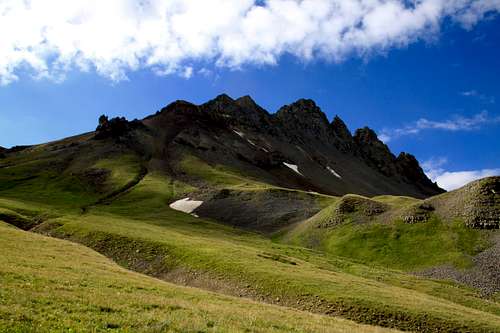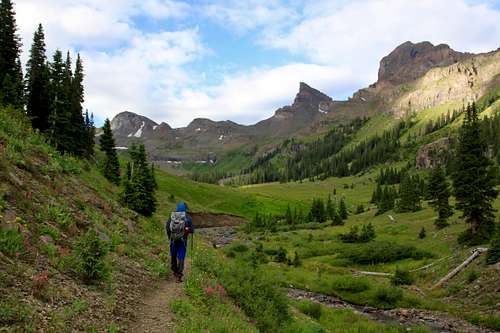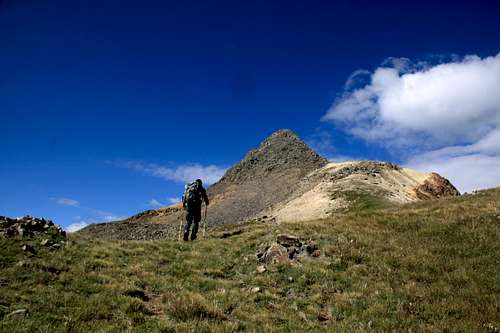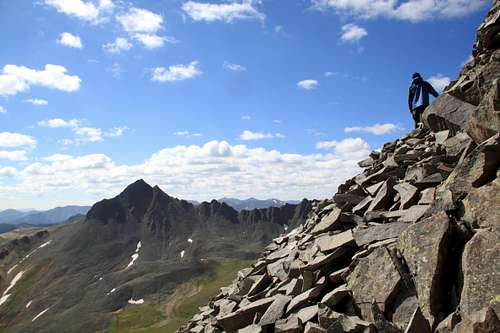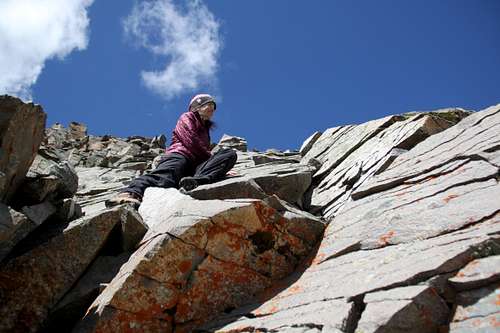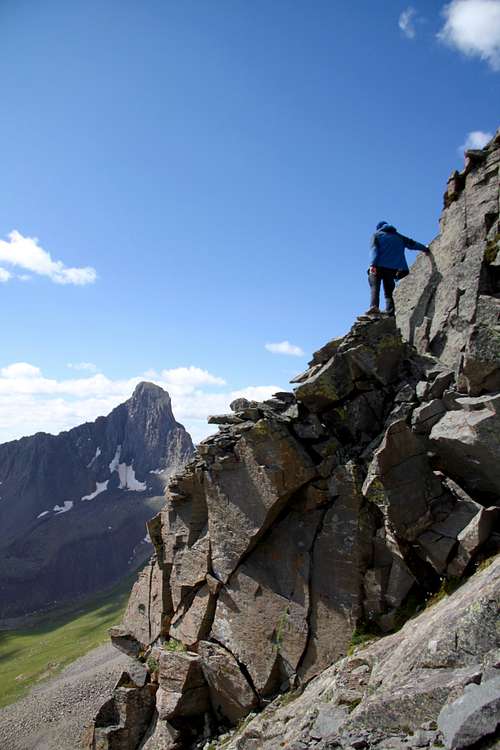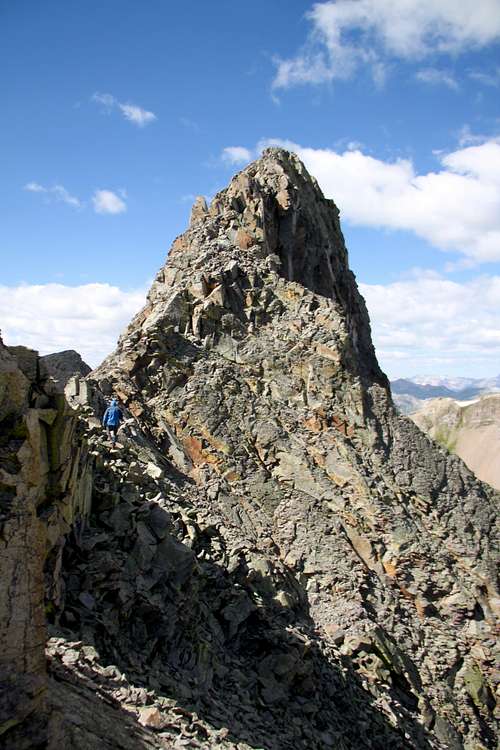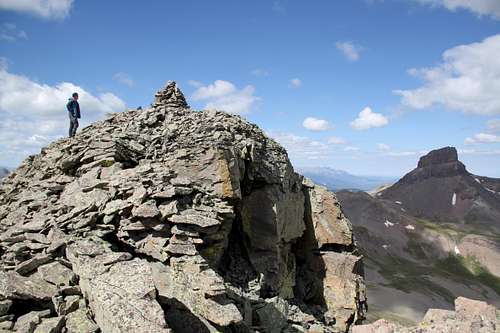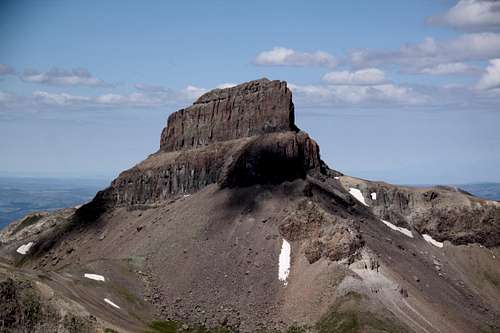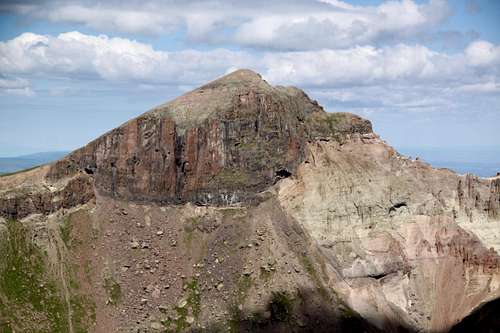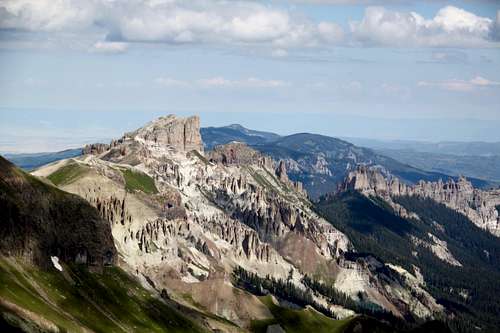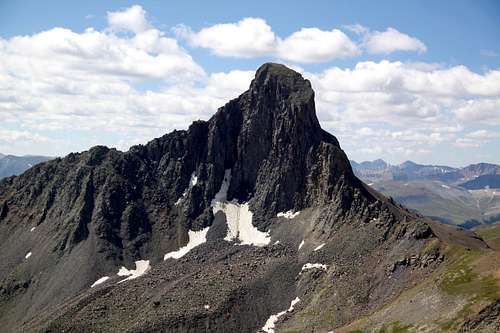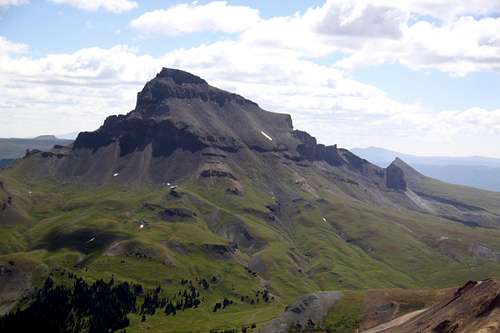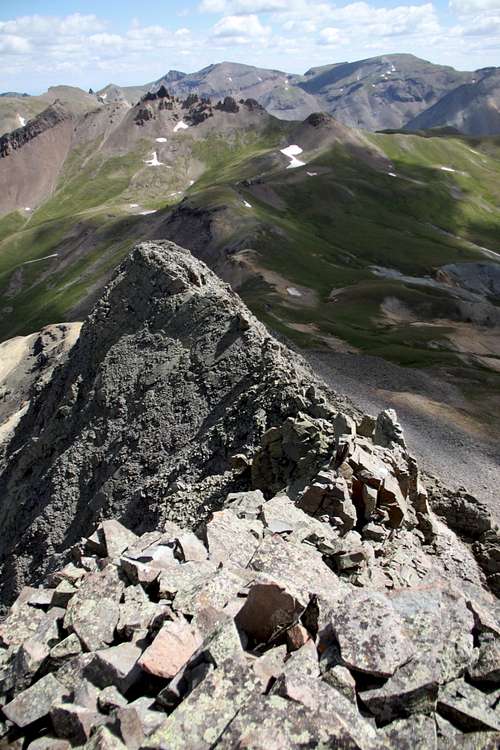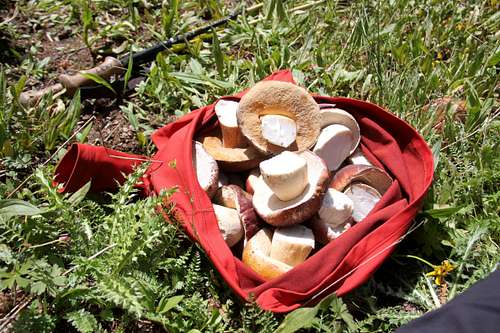-
 8154 Hits
8154 Hits
-
 83.1% Score
83.1% Score
-
 16 Votes
16 Votes
|
|
Mountain/Rock |
|---|---|
|
|
38.07787°N / 107.51173°W |
|
|
Hinsdale |
|
|
Hiking, Mountaineering, Scrambling |
|
|
Spring, Summer, Fall, Winter |
|
|
13411 ft / 4088 m |
|
|
Overview
Peak 13,411' = Heisshorn is a nice scramble located in the Cimarron Range of San Juan Mountains. The peak is kind of hidden and often overlooked by its higher neighbors, but the scramble is enjoyable and described in several books. The approach is on a nice trail, and the climb is on talus and some loose rock, relatively long and exposed. The views are spectacular! You get one of the best views of 14ers (mountains > 14,000 feet) Wetterhorn and Uncompahgre, Coxcomb appears as a spire. The whole Cimarron range is very scenic with interesting shape of its mountains.- Unnamed 13377 0.46 miles
- Unnamed 13206 0.76 miles
- "El Punto" 1.05 miles
- Coxcomb Peak 1.20 miles
- Wetterhorn Peak 1.19 miles
- Matterhorn Peak 1.22 miles
- Redcliff 1.33 miles
- Unnamed 13300 C 1.55 miles
- "Fortress Peak" 1.70 miles
- Uncompahgre 2.73 miles
- Precipice Peak 3.13 miles
- Silver Mountain A 3.92 miles
Getting There
Approach via Middle Fork of Cimarron: From Montrose follow US Highway 50 for approximately 20 miles to the intersection with County Road 858 (sign for Silver Jack Reservoir). Turn south on CR 858 and continue approximately 18.7 miles to Silver Jack Reservoir. Country ROad 858 becomes Forest Service Road # 858 at the forest boundary. Continue on FSR for approximately 1 mile to Forest Service Road # 861.1. It is signed for Middle Fork of the Cimarron. Turn right and follow this road for approximately 4.6 miles to the trailhead.Route
Red Tape
1. Entering or being in the restricted area with more than 15 people per group, with a maximum combination of people and stock not to exceed 25 per group. 2. Camping within one hundred (100) feet of any lake, stream, or National Forest System Trail. 3. Building, maintaining or using a fire, campfire, or wood-burning stove fire: a) within one hundred (100) feet of any lake, stream or National Forest System Trail. b) above treeline. 4. Storing equipment, personal property, or supplies for longer than seven (7) days. 5.Hitching, tethering, hobbling or otherwise confining a horse or other saddle or pack animal: 1) in violation of posted instructions, or 2) within 100 feet of all lakes, streams, and National Forest System Trails. 6. Possessing a dog which is not under control, or which is disturbing or damaging wildlife, people, or property. Note: the term "under control" is defined as the dog being leashed, and/or under direct verbal control by the dogs owner or handler at all times. 7. Shortcutting a switchback in a trail.


